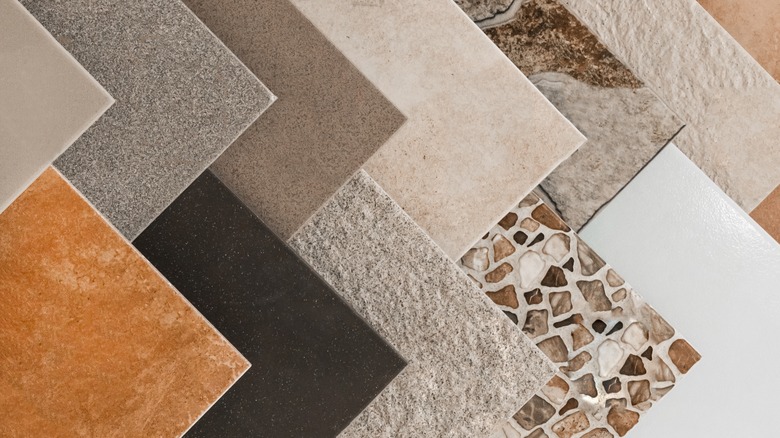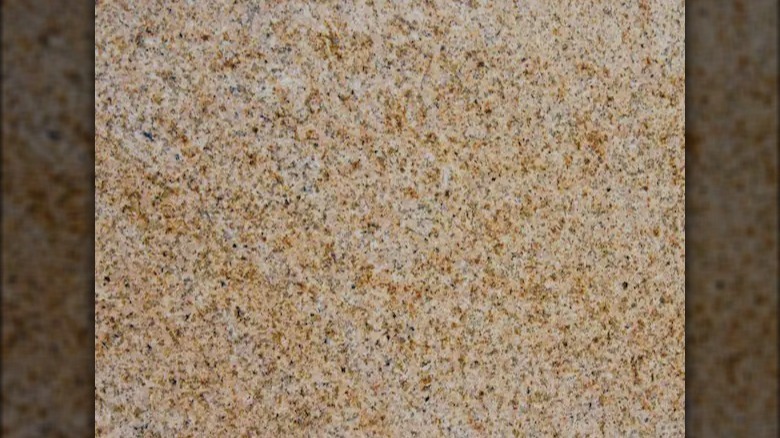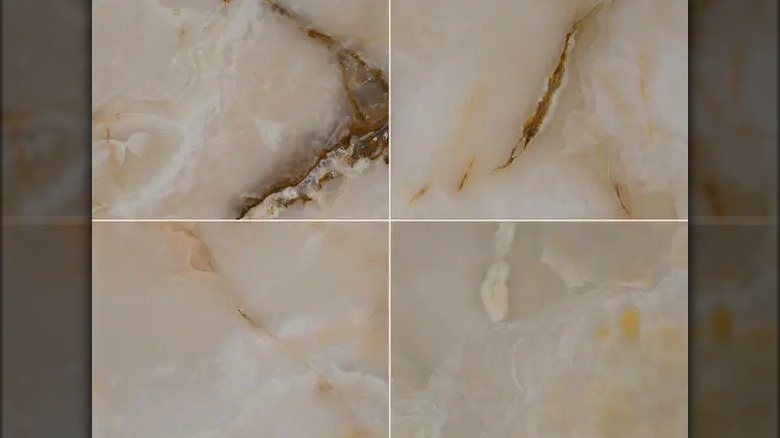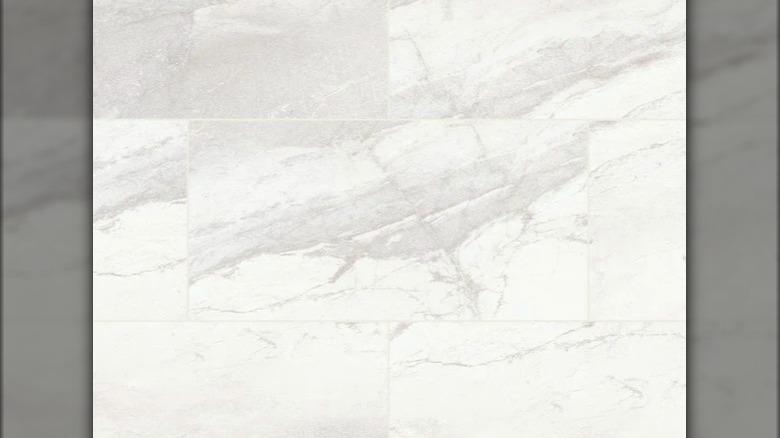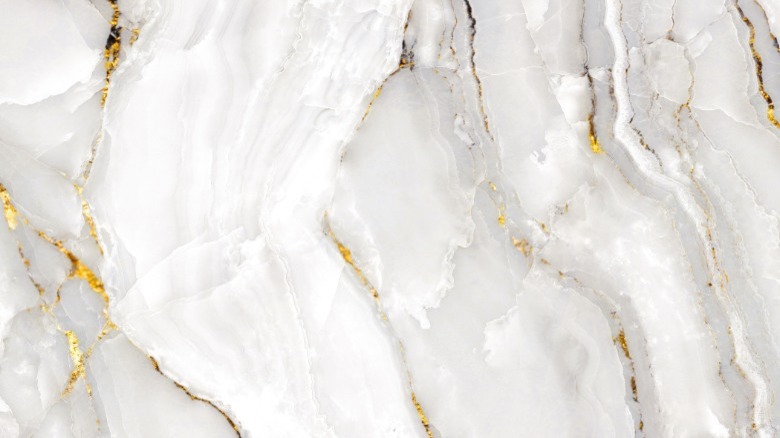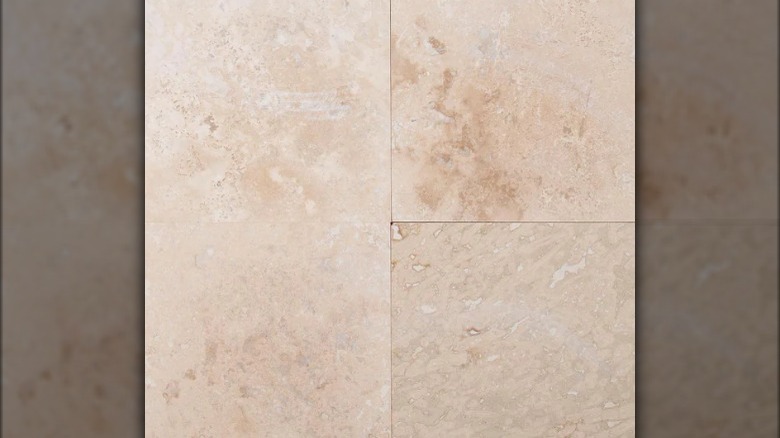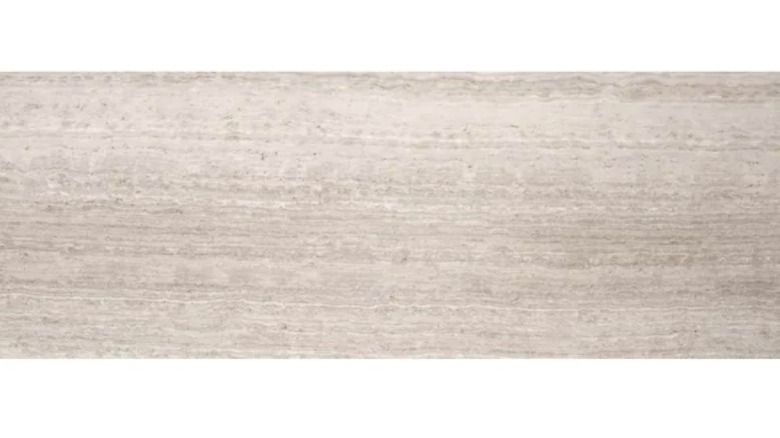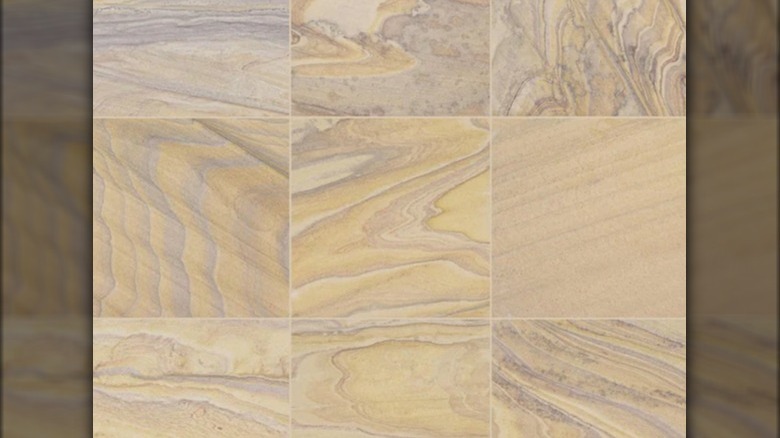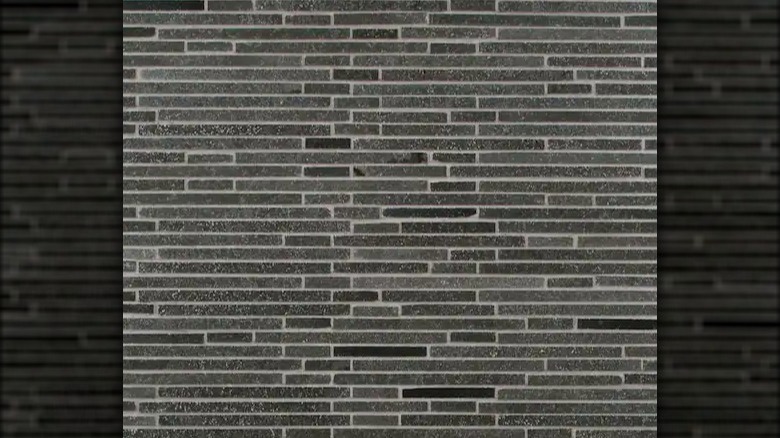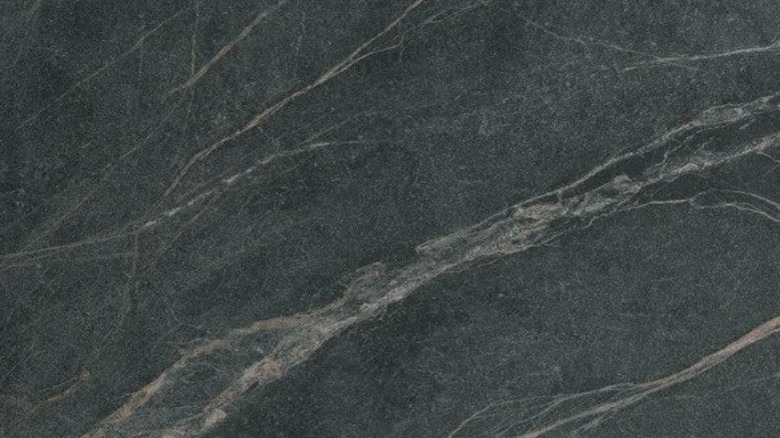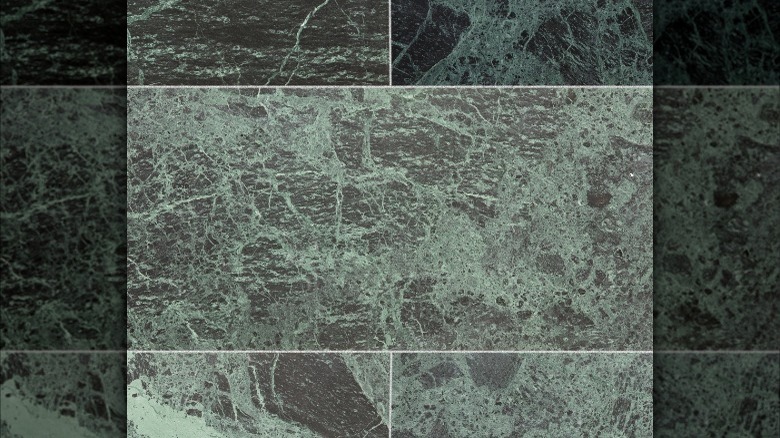10 Different Types Of Stone Tile That You Can Use In Your Shower
When upgrading a bathroom, the right material makes all the difference, and natural stone is a favorite option for tiles in the shower. It brings in beautiful, earthy details and colors that add plenty of visual interest to the space. With natural stone, you'll choose from clean and classic white to sleek blacks and browns to bold shades of blue. Plus, with a variety of shapes and sizes to choose from, you can create unique patterns that add movement and make the shower a feature of the room. But beauty isn't the only benefit of using natural stone tile to adorn your shower.
Natural stone tiles can also be a great investment long-term as they add overall value to your home. As a timeless and durable option, natural stone tile is often sought out by potential homebuyers. It's likely that you'll recoup most, if not all, of your costs as a return on investment when it's time to sell. And because stone is energy efficient, it can help maintain your shower temperature, a good selling point for anyone who likes their showers steaming hot. There are seemingly endless options for natural stone tiles in the shower, but these ten are among the best.
1. Granite
While it might be favored for countertops, granite is also a great option for wall tiles. This natural stone is durable, so it can stand up to even the busiest bathrooms. It's easy to maintain, so you won't have to spend hours scrubbing out stains. The only required maintenance is yearly sealing to prevent moisture from seeping in and causing damage, mold, or mildew. Granite is also available in a wide variety of colors, ranging from light to dark, so you can find granite tiles to match any interior style.
2. Onyx
Onyx is usually sleek and black, but it can come in shades of white and gray as well as gold, red, green, and blue. Onyx is translucent, notes Cosmos Surfaces, meaning it presents the unique opportunity to be backlit to create an incredible ambiance. It's important to note that onyx is a softer stone, which can leave it prone to scratches and chips, so it's not the best option for showers used by kids or for pets. The tiles will also need to be sealed yearly to prevent discoloring and mold or mildew growth.
3. Quartzite
Not to be confused with quartz, which is an engineered stone, quartzite is a natural stone. Quartzite offers a hard surface, so it's a great tile to have in high traffic bathrooms. Quartzite tiles are mostly white or lighter in color because of the quartz composition. Like all natural stone, it's a porous material but will only require sealing once every 10 years. You'll know it needs resealing when the stone turns darker from absorbing water. Once sealed, you can clean it with a soft sponge and a mild cleaner.
4. Marble
Loved because of the dramatic veining and its connotations of luxury, marble tile is a timeless choice for the bathroom. Neutral-colored marble, especially, will be in style for years to come. However, the stone is also available in statement shades of green, blue, and red. Like other natural stones, marble is porous, which means it'll require regular sealing in order to keep out water, soap residue, and hair products that can discolor it. Compared to other stones, marble is much softer, so it can scratch easier. It's best to use these stones in bathrooms that get used less often.
5. Travertine
While travertine may be more popular for exterior tiles, it also makes a great tile for a bathroom shower. The stone is most often seen in shades of beige but can also be white or cream, black, gray, brown, yellow, and even pink. Travertine is durable and impact-resistant, so it's a great option for bathrooms used by kids and for washing pets. While travertine is porous, it should only need resealing every two years to keep out moisture and add extra protection from damage.
6. Limestone
Limestone is a gorgeous option that offers texture and variety. What many homeowners love about this natural stone is that it weathers naturally over time, so within a few years, you'll have tiles with plenty of character. There are three classifications of limestone; Class III is a high-density option with a low absorption rate of about 3% or less. Sealing limestone at least once a year will ensure that it doesn't stain and you can maintain the beautiful stone.
7. Sandstone
Sandstone is another material that's more commonly used outdoors but would make a great option for bathroom showers. Not only is the stone durable, but it also has slip-resistant properties, which are ideal for shower floors. Sandstone is low-maintenance, so it's also great for high-traffic bathrooms as it is easily cleaned. Since it can come in both neutral and colorful shades such as yellow, orange, pink, and purple, you can make a bold statement with your shower tiles.
8. Basalt
Basalt is a volcanic stone, which gives it its signature smoky gray-black color. It's also the high-temperature environment in which it's formed that makes basalt a durable stone that's ideal for bathrooms that may get a lot of use. Basalt is best used on shower walls because continuously submerging the tile in water, as you would on a shower floor, can cause damage. Though it's highly functional, you're not giving up any style at all. Basalt looks sleek and contemporary and can give a bathroom an edgy look.
9. Soapstone
Soapstone is another versatile natural stone that can be used inside and outside the home. It comes in shades of gray with distinctive white veining that can often resemble the appearance of marble. This stone is highly durable, which makes it ideal for family bathrooms that see a lot of activity. Compared to other natural stones, soapstone doesn't absorb as much water and it doesn't get slippery when wet, so it's good for shower floors. Soapstone also retains heat well, which makes it a good option for radiant floors and for keeping your shower steamy hot.
10. Serpentine
As a metamorphic rock, serpentine has a stunning green appearance that can have black, brown, white, or gold veining or tones throughout. Serpentine can also be translucent, which allows it to be backlit to see the depth of each tile's color. This stone is soft, so it's best placed in bathrooms like the primary suite rather than one used by kids or the whole family to prevent cracks or chips. Like other natural stones, serpentine needs to be sealed to prevent moisture absorption and stains.
